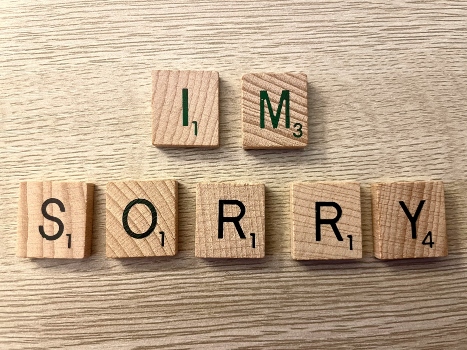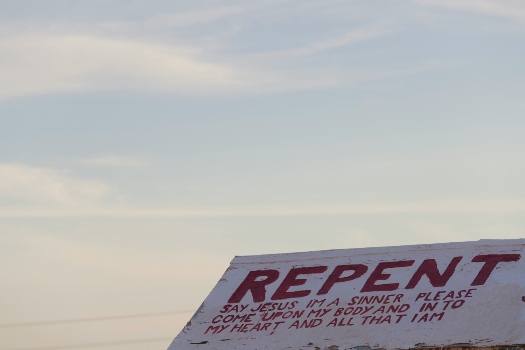It’s More Than Just Saying I’m Sorry
Too often, the words “I’m sorry” are said without any real meaning of being sorry behind them. These words are thrown around flippantly so that we can move on. We don’t really mean it.

We use them as a kind of get out of jail free card.
Repenting is more than just saying, I’m sorry. Repentance involves action. It’s more than words. There is true regret and contrition for what we’ve done. It involves stopping, helping, and repairing. This includes asking God to forgive us.
King David is a great example of how repenting is not a one and done thing. We live in a fallen world; we are human. We’re constantly being pulled by the world to do things that feel good at the time.
The story of David and Bathsheba in the Bible is one that most of us are familiar with. David breaks several of the Ten Commandments here. Don’t commit adultery, don’t covet your neighbor’s things, don’t steal, oh and let’s not forget…don’t murder.
Then Nathan the profit is sent to David with a story about two men.
“One was rich and one was poor. The rich man owned a great many sheep and cattle. The poor man owned nothing but one little lamb he had bought. He raised that little lamb, and it grew up with his children. It ate from the man’s own plate and drank from his cup. He cuddled it in his arms like a baby daughter.
One day a guest arrived at the home of the rich man. But instead of killing an animal from his own flock or herd, he took the poor man’s lamb and killed it and prepared it for his guest.”

David was furious. “As surely as the Lord lives,” he vowed, “any man who would do such a thing deserves to die! He must repay four lambs to the poor man for the one he stole and for having no pity.”
Then Nathan said to David, “You are that man!
The Lord, the God of Israel, says: I anointed you king of Israel and saved you from the power of Saul. I gave you your master’s house and his wives and the kingdoms of Israel and Judah. And if that had not been enough, I would have given you much, much more.
Why, then, have you despised the word of the Lord and done this horrible deed? For you have murdered Uriah the Hittite with the sword of the Ammonites and stolen his wife. From this time on, your family will live by the sword because you have despised me by taking Uriah’s wife to be your own.”
Then David repents.
Psalm 51:1-12 is David prayer of repentance after Nathan confronted him with his sins. He didn’t make excuses for what he’d done. His asking for forgiveness absolved him of the sin but it didn’t remove the consequences.
Repentance in the Old Testament literally means “to turn around”.
Repentance is a change in how I think that leads to a change in how I live.

“Let’s suppose a man wants to learn how to parachute. So, he goes to a parachute school, and they show him how to rig up his gear, pull the rip cord, and land safely. Finally, the day comes when they take him up in an airplane. He’s scared to death, but he’s afraid to back out. The moment comes when he is to jump. He goes to the airplane’s door and sees the ground 7,000 feet below. His legs grow weak, he’s about to throw up, and somebody behind him tries to push him out of the airplane. At the last second, he says, “No. I’m not going to do it.” “Go ahead, you can do it,” his instructor shouts. “I’ve changed my mind,” he replies. “I’m not going to jump.” And he doesn’t. That man has repented. He’s decisively changed his mind.”
We have all sinned. We can repent. Jesus came and fought sin on our behalf.
We are not sinners because we sin…we sin because we are sinners.
It’s up to us to say we’re sorry, repent, and turn around.

